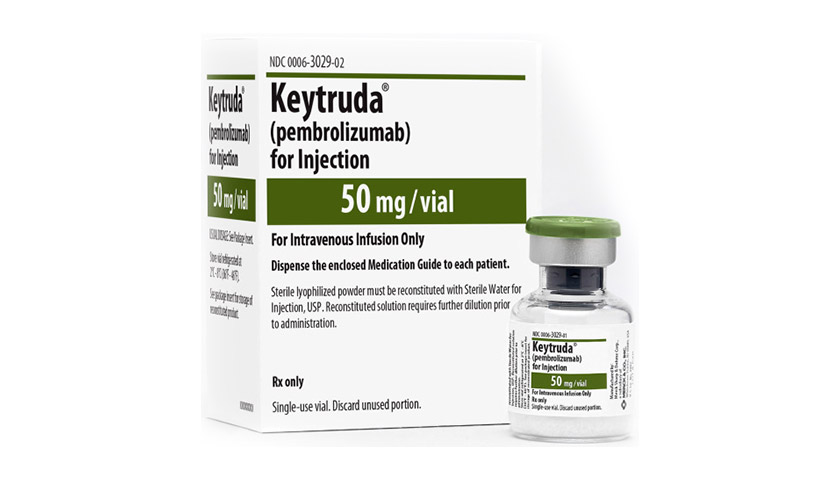Merck builds case for six-week Keytruda dosing as FDA starts review

Merck & Co’s checkpoint inhibitor Keytruda can be given half as often and still retain its efficacy, according to new data presented at the American Association for Cancer Research (AACR) virtual congress.
Giving a 400 mg dose of the PD-1 inhibitor every six weeks, rather than the approved dosing of 200 mg every three, was just as effective when used as a first-line treatment for patients with melanoma, a form of skin cancer.
Interim data from the KEYNOTE-555 study reported at the AACR found that the overall response rate for the six-week Keytruda (pembrolizumab) regimen was 38.6%, which Merck said was in line with prior melanoma trials using the approved three-week dosing schedule.
Merck tried and failed to get FDA approval for the six-week regimen at its first attempt, receiving a complete response letter from the US regulator in February for an application based mainly on pharmacokinetic modelling and simulation data.
Merck’s first attempt covered the use of Keytruda across six cancer types – melanoma, Hodgkin’s lymphoma, B-cell lymphoma, gastric cancer, hepatocellular carcinoma and Merkel cell carcinoma.
It was more successful in Europe, where Merck is known as MSD, as the EMA gave the go-ahead for the six-week regimen in March 2019 across all of Keytruda’s monotherapy indications.
Last week, Merck refiled its marketing application in the US across all of Keytruda’s approved indications in adults, both on its own and in combination with other drugs.
“We remain committed to improving cancer care, which includes the ability to offer greater flexibility in administering Keytruda,” said Dr Scot Ebbinghaus, head of clinical research at Merck Research Laboratories.
“These data, coupled with extensive model-based assessments, provide strong evidence for a six-week dosing regimen for Keytruda,” he added.
If approved by the FDA the simpler dosing schedule could add further momentum to Keytruda, which is already growing at a phenomenal rate thanks to a steady stream of new regulatory approvals and indications.
Last year, worldwide sales of the drug grew 55% to almost $11.1 billion, driven by its use in non-small cell lung cancer (NSCLC) – where it dominates the immunotherapy market – as well as newer indications like kidney cancer and adjuvant treatment of melanoma.
The six-week regimen is helping to consolidate its lead in the market over arch-rival Opdivo (nivolumab) from Bristol-Myers Squibb – which it overtook in sales terms in mid-2018 – as well as the growing number of drugs in the PD-1/PD-L1 inhibitor category.
There are already six drugs in the class on the market, and GlaxoSmithKline has just reported new results with dostarlimab, which could become the seventh if it gets FDA approval later this year.












